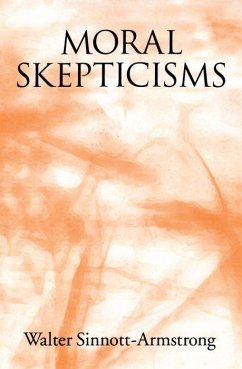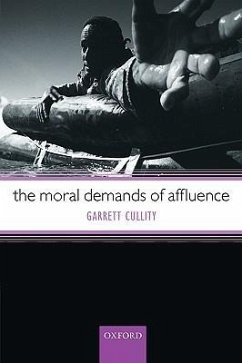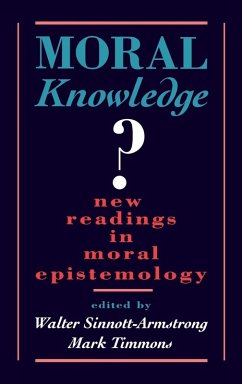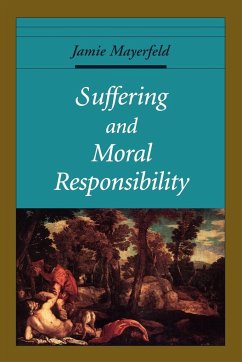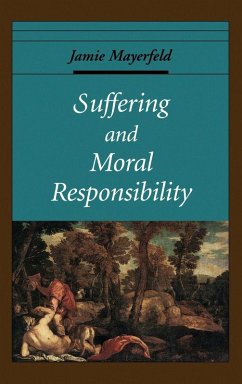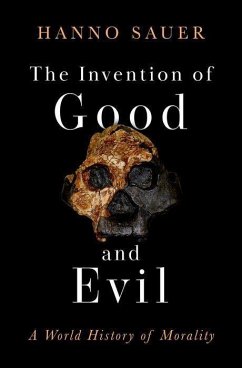
Moral Skepticisms
Versandkostenfrei!
Versandfertig in 1-2 Wochen
80,99 €
inkl. MwSt.
Weitere Ausgaben:

PAYBACK Punkte
40 °P sammeln!
Moral epistemology is the term for thinking about how a moral belief can be justified. All contentious moral issues -from gay marriage to terrorism-raise difficult questions about the formation and status of moral beliefs. If we do form an opinion, how is that belief justified, particularly when others may feel quite differently? And even if we reach a consensus, how is that unanimous belief justified? These questions raise fundamental issues about the nature of morality, language, metaphysics, and justification and knowledge; but they also have tremendous practical importance regarding how to...
Moral epistemology is the term for thinking about how a moral belief can be justified. All contentious moral issues -from gay marriage to terrorism-raise difficult questions about the formation and status of moral beliefs. If we do form an opinion, how is that belief justified, particularly when others may feel quite differently? And even if we reach a consensus, how is that unanimous belief justified? These questions raise fundamental issues about the nature of morality, language, metaphysics, and justification and knowledge; but they also have tremendous practical importance regarding how to (if indeed we can) resolve controversial moral issues in health care ethics, politics, the law, and education. Most agree that moral nihilism-the idea that moral beliefs simply cannot be justified-is undesirable. Sinnott-Armstrong here provides an extensive survey of this difficult subject, tackling such questions as: Does knowledge require true belief? Are any moral beliefs true, and are any justified? The second half of the book brings into dialogue various moral theories that have grappled with these questions, such as naturalism, normativism, intuitionism, and coherentism, all of which are attempts to answer moral skepticism. Sinnott-Armstrong finds all of these theories lacking in their ability to fight off moral nihilism. He defends his own theory, which he calls "moderate moral skepticism," which argues that some moral beliefs can be modestly justified, but not extremely justified.




